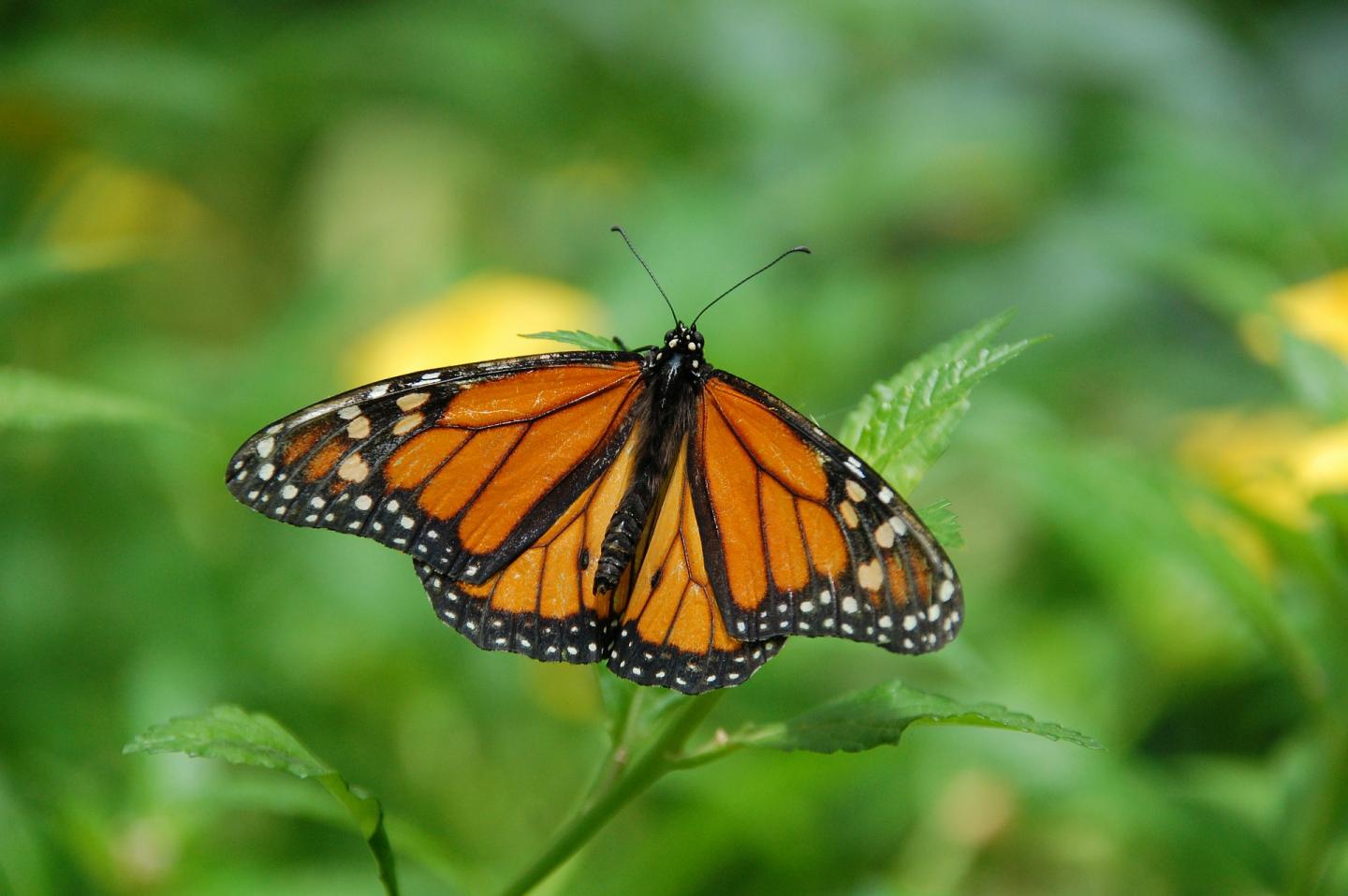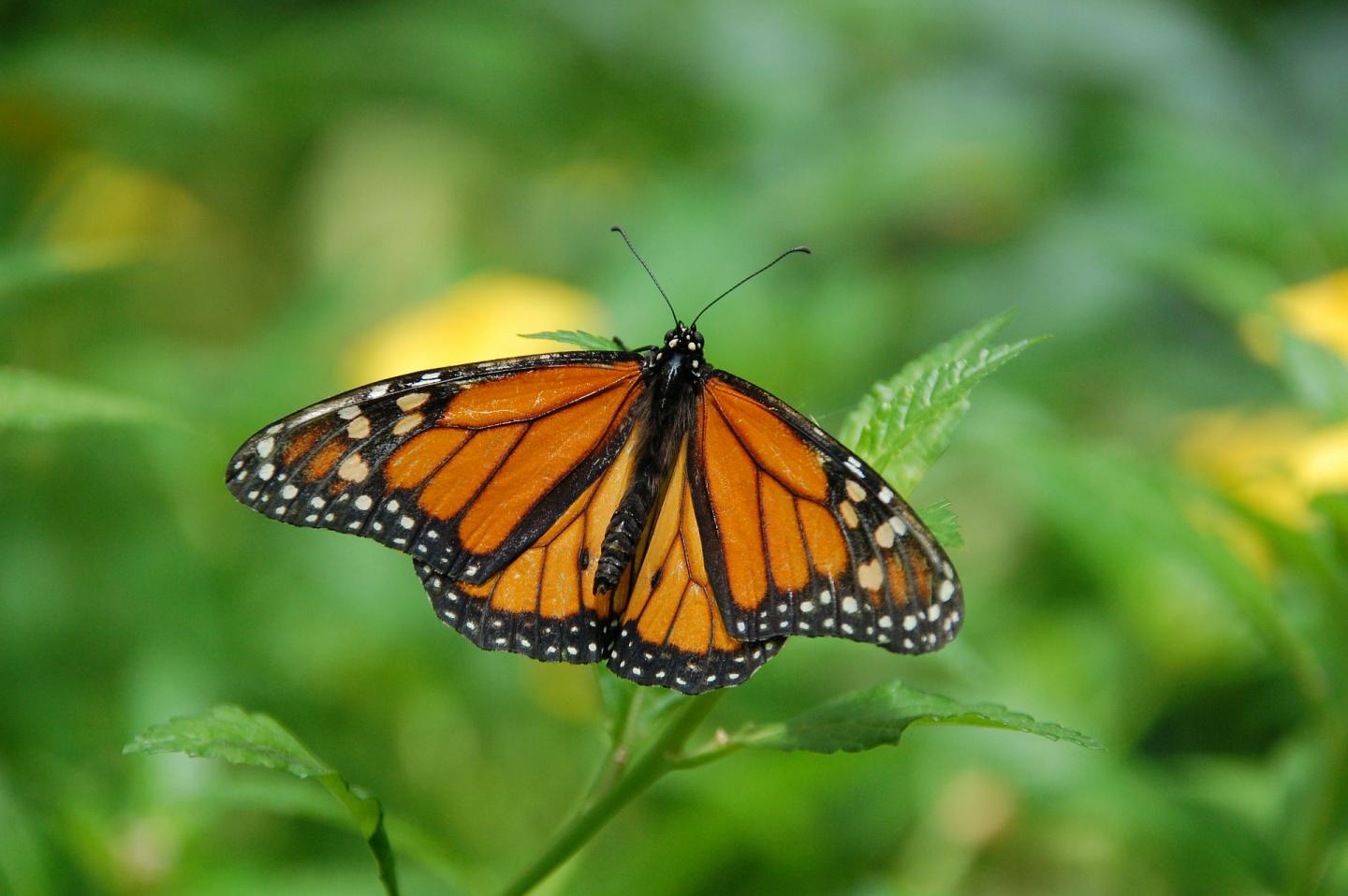
Credit: Stock
University of Guelph researchers have pinpointed the North American birthplaces of migratory monarch butterflies that overwinter in Mexico, vital information that will help conserve the dwindling species.
The researchers analyzed "chemical fingerprints" in the wings of butterflies collected as far back as the mid-1970s to learn where monarchs migrate within North America each autumn.
The largest percentage of monarchs migrated to Mexico from the American Midwest, but the biologists were surprised to find that the insects' origins were spread fairly evenly throughout Canada and the United States.
"We expected the vast majority of monarch butterflies to be found in the Midwestern states," said Tyler Flockhart, lead author and Liber Ero Postdoctoral Fellow at U of G.
"However, just 38 per cent come from that part of the U.S.A. If we just focus conservation activities on this area, this research shows we will be missing a large number of butterflies born elsewhere in North America."
This is the first detailed look at where overwintering monarch butterflies are born over multiple years, he said.
Monarch numbers have dropped significantly in recent years, likely due partly to the eradication of milkweed, which began in the mid-1990s. Monarchs feed on milkweed and lay their eggs on the plants.
Analyzing more than 1,000 samples, the research team looked at chemical isotope signatures showing where the butterflies were born in the previous summer and fall.
They found that 12 per cent of the insects were born in the northwestern U.S. and Canadian Prairies, 17 per cent in the north-central States and Ontario, 15 per cent in the northeastern U.S. and the Maritimes, 11 per cent in the south-central U.S. and eight per cent in the southeastern States.
"We didn't see the decline in the proportion of monarchs we expected in the breadbasket of the U.S. — the Midwestern states — due to the loss of milkweed, but that could be because monarch numbers dropped across North America," said Flockhart.
Co-author and integrative biology professor Ryan Norris said the study shows monarch conservation efforts must begin immediately throughout North America. He called for better collection and analysis of butterflies in their Mexican overwintering grounds to monitor the effects of conservation efforts.
"We're facing a growing crisis of species extinction, not just with monarchs," said Norris, co-author of the new paper. "While the Midwest U.S.A. is top-priority, effective conservation of monarchs will require initiatives to restore and conserve habitats across the species range, which means there must be coordinated international initiatives."
The Guelph researchers worked with collaborators at Western University in London, Ont., the University of Georgia, Sweet Briar College in Virginia, Universidad Nacional Autonoma de Mexico, Environment Canada and the International Atomic Energy Agency.
Most of the older monarch samples were collected by Lincoln Brower of Sweet Briar College, who has studied the butterflies for more than 50 years.
###
The study was published this month in Global Change Biology.
Media Contact
Tyler Flockhart
[email protected]
@uofg
http://www.uoguelph.ca
############
Story Source: Materials provided by Scienmag





